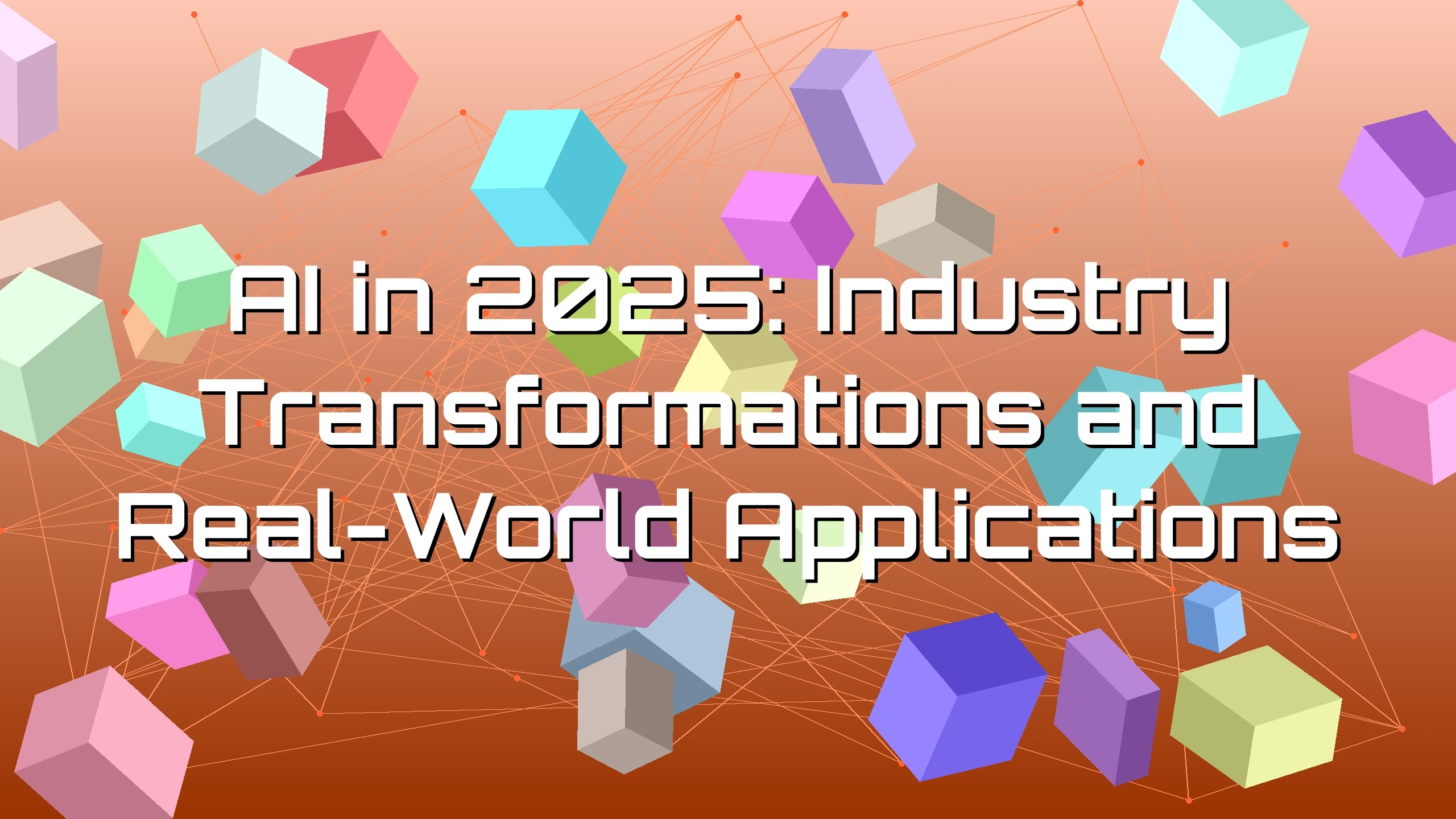As we approach 2025, artificial intelligence (AI) is set to revolutionize industries across the board, offering unprecedented opportunities for innovation, efficiency, and competitive advantage. Let’s explore how AI advancements will impact various sectors and examine a hypothetical use case to illustrate the potential benefits.

Industry-Specific AI Advancements
Manufacturing: The Dawn of Industry 4.0
By 2025, AI will be a cornerstone of the Fourth Industrial Revolution, transforming manufacturing processes:
- Predictive Maintenance: AI-powered sensors and analytics will predict equipment failures before they occur, reducing downtime and maintenance costs[5].
- Quality Control: Computer vision and machine learning algorithms will enhance quality control processes, identifying defects with greater accuracy and speed than human inspectors.
Healthcare: Personalized Medicine and Enhanced Diagnostics
The healthcare industry is on the brink of an AI-driven revolution:
- Personalized Treatment Plans: AI algorithms will analyze vast amounts of patient data to create tailored treatment plans, improving efficacy and reducing adverse reactions[5].
- Faster, More Accurate Diagnoses: AI-powered imaging analysis tools will enhance the speed and accuracy of disease diagnosis, potentially saving countless lives through early detection.
Financial Services: Smarter Decisions, Enhanced Security
The financial sector is set for a major AI-driven overhaul:
- Advanced Fraud Detection: Machine learning algorithms will significantly improve the accuracy of fraud detection systems, reducing financial losses and enhancing security[5].
- AI-Powered Trading: Sophisticated AI systems will analyze vast amounts of market data to make split-second trading decisions, potentially leading to more efficient markets[5].
Real-World Applications and Announcements
Several industry leaders have already announced AI initiatives for 2025:
- Best Buy plans to launch a generative AI-powered virtual assistant that can troubleshoot product issues, reschedule order deliveries, and manage subscriptions[8].
- IHG Hotels & Resorts is building a generative AI-powered chatbot to help guests easily plan their vacations directly in their mobile app.
- Mercedes Benz will infuse e-commerce capabilities into its online storefront with a gen AI-powered smart sales assistant.
- Bristol Myers Squibb is transforming its document processes for clinical trials using AI, reducing documentation time from weeks to minutes.
Hypothetical Use Case: AgriTech Innovations
Let’s consider a hypothetical agricultural technology company, “FarmFuture,” and how it might leverage AI advancements in 2025:
Company Profile: FarmFuture specializes in precision agriculture solutions for large-scale farms.
AI Implementation:
- Crop Management: FarmFuture develops an AI-powered system using drones and sensors to optimize irrigation, fertilization, and pest control[6].
- Yield Prediction: Machine learning models analyze historical data, weather patterns, and real-time sensor information to predict crop yields with high accuracy[6].
- Autonomous Equipment: AI enhances the capabilities of self-driving tractors and harvesting machines, improving efficiency and reducing labor costs[6].
Benefits:
- Increased crop yields by 20% through optimized resource allocation
- Reduced water usage by 30% with AI-driven precision irrigation
- Labor cost savings of 25% due to automated farming equipment
- Improved sustainability by minimizing chemical usage through targeted application
By leveraging these AI advancements, FarmFuture not only improves its clients’ productivity and profitability but also contributes to more sustainable farming practices. This hypothetical case illustrates how AI can transform traditional industries, creating value while addressing global challenges like food security and environmental conservation.
Expected AI Releases
| Company | Product | Expected Release Date | Key Functionalities |
|---|---|---|---|
| OpenAI | GPT-5 | Early 2025 | Advanced reasoning, multimodal capabilities, task automation |
| Gemini 2.0 | 2025 | Agentic AI, multimodal processing, enhanced search capabilities | |
| Microsoft | Windows Server 2025 | 2025 | Cloud integration, AI-powered productivity tools, enhanced security |
| Meta | Llama 4 | Early 2025 | Advanced language modeling, application-oriented AI |
| Amazon | Amazon Nova | 2025 | Multimodal AI tools for e-commerce, logistics, and enterprise applications |
This table provides a concise overview of the major AI releases expected in 2025, highlighting the ongoing competition and innovation in the AI industry. Each company is focusing on advancing their AI capabilities, with emphasis on multimodal processing, enhanced reasoning, and practical applications across various domains.
As we move towards 2025, the integration of AI across industries will continue to accelerate, driving innovation and reshaping business models. Companies that successfully harness these AI advancements will likely gain significant competitive advantages in their respective markets.
